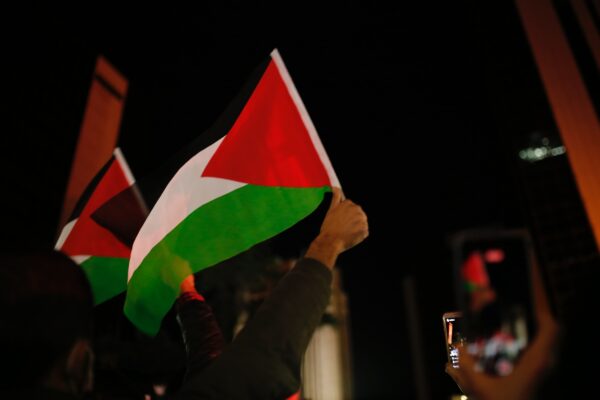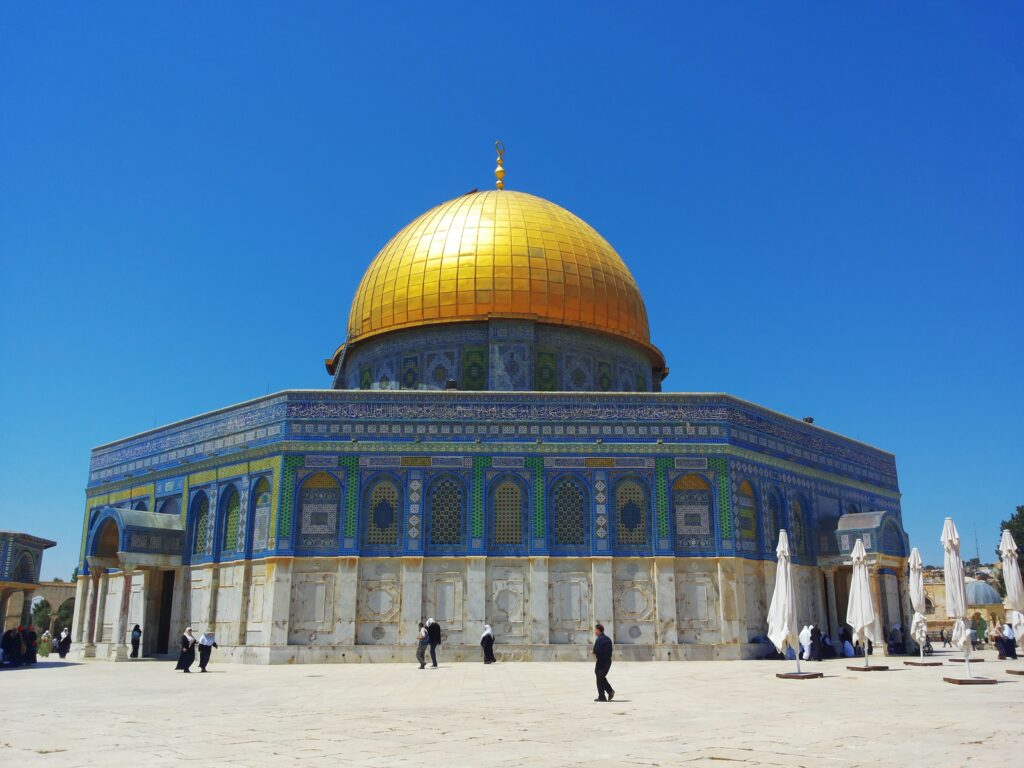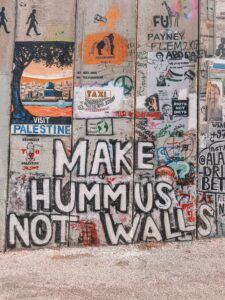6th November 2023
Listen
Listen

Opinion pieces are the view of the author and in no way reflect the views of Liverpool Guild Student Media or Liverpool Guild of Students.
This week (20th – 26th March) is Israeli Apartheid Week (IAW), a yearly event that has taken place in over 200 cities and universities worldwide for the last 18 years. The ‘BDS‘ (Boycott, Divestment, Sanctions) Movement describes the week as “a tool for mobilising grassroots support on the global level for the Palestinian struggle for justice.” Millions of Palestinians are currently living in horrific conditions, so this week is as important as it has ever been. IAW calls for ‘People Against Apartheid’, the title of this year’s theme. Education on this issue is increasingly important, with many people unaware of the true extent of the country’s problems.
The land historically known as ‘Palestine’ is a small region on the coast of the Mediterranean, northeast of Egypt and south of Turkey. Over the last few millennia, it has been occupied by many different groups. From the Canaanites and the Israelites to the neo-Babylonians and the Ottomans. It was the birthplace of both Judaism and Christianity. From about 1200 BCE, it has held a Jewish presence, one which has remained despite various outside influences, such as the annexing of Judea by the Romans. After the fall of Rome, it belonged to first the Persians and then the Byzantine empire.

In the 7th century, the region was conquered by a Caliphate, signalling the start of Muslim dominance. The actual population of the region was made up of Christians, Muslims and Jews. The Ottomans then ruled, from the 15th to the 20th century. Subsequently, you find some of the most important holy sites for each religion extremely close to each other in Jerusalem. Following WW1, the British held a mandate over the region. Following WW2, the UN recommended a partition, creating a Jewish state in Palestine that took up 55% of the region. In 1948, they established the state of Israel and there was immediately an Arab-Israeli War.
“The old will die and the young will forget.”
David Ben-Gurion, first Prime Minister of Israel, referring to displaced Palestinians returning to their homes in 1948.
During this war, Israel took more territory and eventually occupied 78% of what had been Mandatory Palestine. This results in Al-Nakba (“the catastrophe”), where 700,000 Palestinians were displaced and their villages destroyed. Up to 5,000 Palestinians were directly killed by Israel during this, most of whom were just trying to return to their homes. Furthermore, a large amount of Palestinians ended up internally displaced, with broken-up settlements across Jerusalem, the West Bank and Gaza. Following the Six-Day War in 1967, Israel took over all of the lands which had been Mandatory Palestine and began building settlements throughout it. They also invaded and occupied the Syrian Golan Heights.
Throughout the rest of the 20th century, Israel waged war with other countries, such as Lebanon. Israel then became increasingly harsh on Palestinians, in response to the first and second Intifadas. The 21st century saw multiple flare-ups and many deaths on both sides, although disproportionately among Palestinians. Notable flare-ups happen in 2005, 2008, 2014, 2018 and 2021. Amnesty International recognises Israel as an apartheid state. International law defines apartheid as “policies and practices of racial segregation and discrimination” and denotes it as an international crime.
When discussing Palestine and Israel, it is important to note the difference between Zionism, Judaism and Israel. Zionism, traditionally, is the will for a Jewish homeland in the area of Palestine. Judaism is, of course, the religion that Zionism centres around. However, not all Jewish people necessarily support Zionism or Israel. Not all Zionists are Jewish either.
“I am a Zionist. You don’t have to be a Jew to be a Zionist.”
US President Joe Biden
The US has, since its creation, unilaterally supported Israel. They see the country as a way to uphold American influence in the Middle East. This is crucial to Israel’s existence and the actions they take as a country. As Israel’s treatment of Palestinians increasingly turns it into a pariah state, the backing of the US serves as its most useful asset.
We must address the anti-semitism often co-opted into pro-Palestine arguments. Being against the settler-colonialism of Israel does not necessarily equate to anti-semitism. Anti-semitism is a terrible issue and must always be condemned in any form, as with all other discriminations. We must not let it grow or spread.
It is within living memory that Palestinians were forced out of their homes and 75 years later, their right to return is still not allowed by Israel. It is an indisputable fact that Palestinians are displaced within the region of Palestine, due to Israeli settlements. However, we must remember that this is a human rights issue, rather than a solely religious one.
“If there were not an Israel, we’d have to invent one.”
US President Joe Biden, on multiple occasions over the last 40 years.
With the idea of ‘People Against Apartheid’ at the forefront of this week, it is ever-necessary for people to be educated on this topic and the struggle that Palestinians face. To this day, millions of Palestinians are stateless and displaced, with horrific conditions in the occupied territories. Israel treats Palestinians living within their borders as second-class citizens, with an ever-growing 65 discriminatory laws against them. Gaza is described as an ‘open-air prison’.

The Israeli regime has killed 17 Palestinian children so far in 2023. 97% of Gaza water is undrinkable. The reason for Israeli Apartheid Week is to bring attention to these issues. We must look at these facts directly. Let them make you uncomfortable, so you can understand the struggle faced by Palestinians. The UK government also supports Israel and rarely calls them out for these subjects. If governments support it, then it is clear why this year’s IAW calls for the people to stand against apartheid.
Due to the sensitive nature of this topic, you may want to access the range of services available to you through the Guild Advice and the University Wellbeing Advisers. All support details can be found here.
Cover photo by Ömer Yıldız from UnSplash